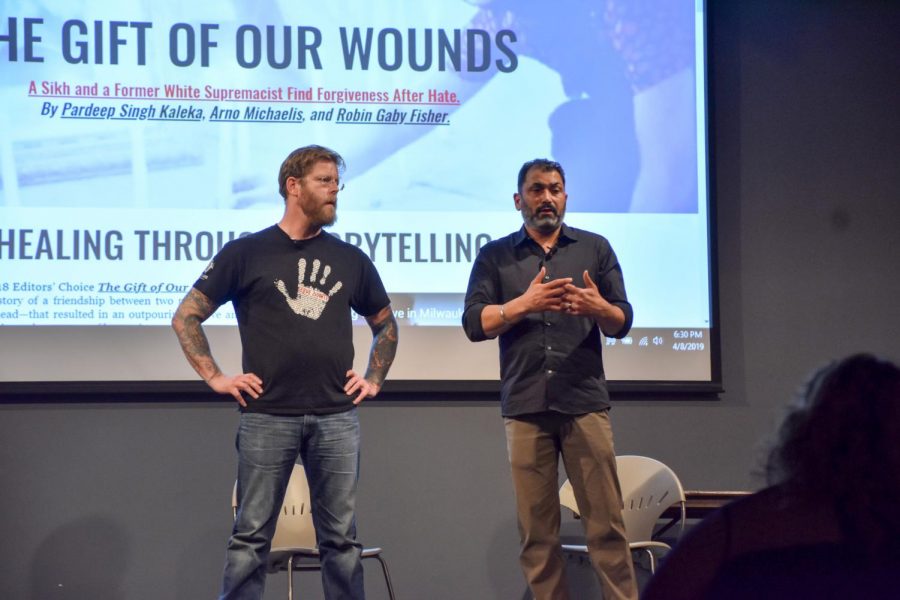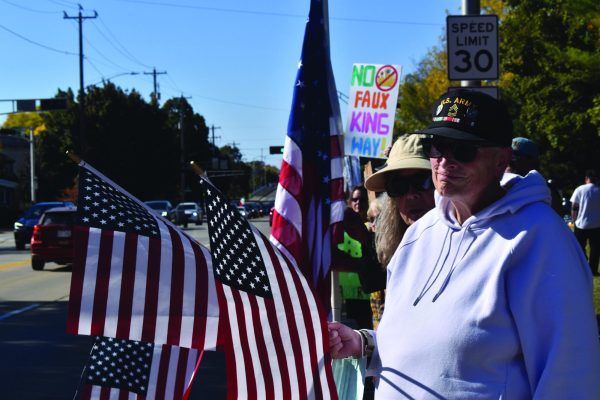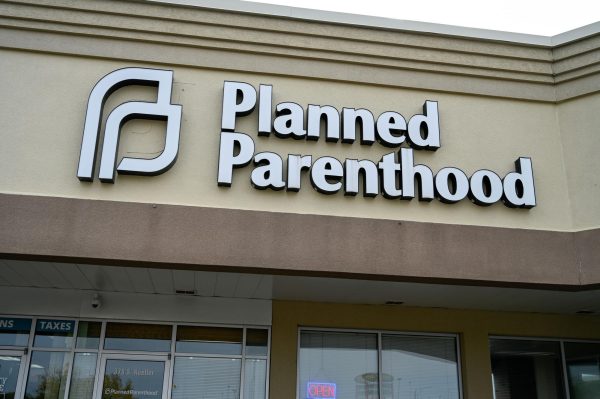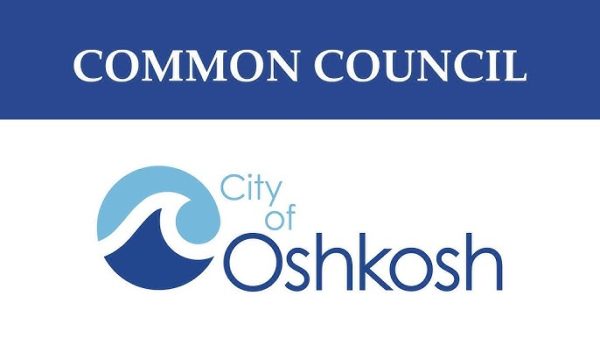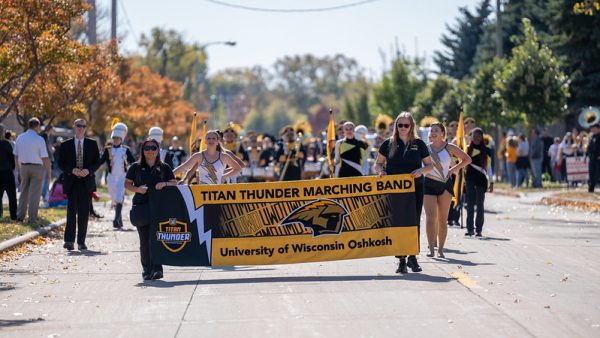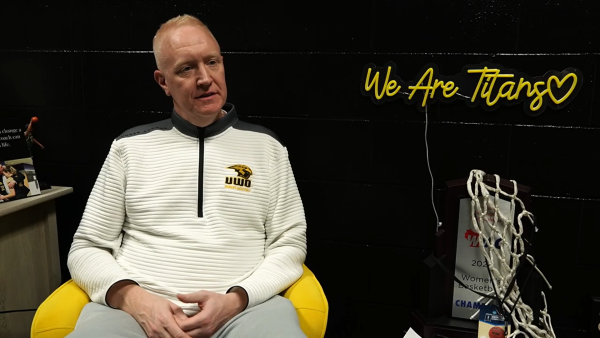‘Moving Past Hate’ and toward forgiveness
Arno Michaelis started a hate group that killed a mans father. That man became friends with Michaelis through the power of forgiveness.
Arno Michaelis (left), a former white supremacist, and Pardeep Singh Kaleka, a witness of a hate crime, spoke on campus Monday.
UW Oshkosh hosted “Moving Past Hate” on Monday, which featured a former white supremacist and a witness of a hate crime who shared their story of forgiveness that formed a unique friendship.
Authors of “The Gift of Our Wounds” Pardeep Singh Kaleka and Arno Michaelis shared their message in the Reeve ballroom.
Masood Akhtar, who founded “We Are Many – United Against Hate” a movement aimed to promote peace, said Arno and Pardeep’s story is a real-life powerful Wisconsin story.
“Arno is a former white supremacist who started a hate group that killed Pardeep’s dad, among others, on August 5, 2015, at the Oak Creek Sikh Temple shooting,” Akhtar said. “Several months after the shooting, Arno and Pardeep met and became the best family friends and started an organization called Serve2Unite.”
Michaelis decided to leave the white supremacist life because, according to him, hate is exhausting.
“It was exhausting to cut myself off from the rest of society, but what was most exhausting was when people I claimed to hate treated me with kindness,” Michaelis said. “When that happened, nothing indicated how wrong I was more powerfully than that.”
Kaleka said he would not be able to say the shooter’s name without first forgiving him.
“Me understanding does not mean me condoning,” Kaleka said. “It’s actually me forgiving and finding vengeance in the forgiveness that I’m giving.”
To Kaleka, forgiveness is more about the forgiver than the person forgiven.
“Forgiveness and compassion is for you,” Kaleka said. “It’s a gift to yourself.”
People often look at kindness as a weakness, but Michaelis disagrees, having learned from Kaleka.
“If someone is treating you with hostility and you reply with kindness, what kind of weakness is that?” Michaelis said. “It’s actually the greatest strength you can demonstrate.”
Michaelis said he looks forward to a world where everyone is kind to each other.
“I’m always trying to do the best I can to bring about a world where everyone is valued and included,” Michaelis said. “That’s my personal mission statement, and that’s what I want to see happen in society.”
Kaleka said people need to understand the pain of others in order to relate with them.
“We’ve been engaging communities in empathy, and that was one of the things that’s missing is we don’t feel each other’s pain,” Kaleka said. “We judge it, we rationalize it, we do everything else but bare witness to pain.”
Kaleka and Michaelis have both written books that focus on a number of concerns in society.
“They share a message of forgiveness and compassion while addressing a host of issues including violence, racism, sexism, homophobia, religious intolerance, et cetera,” Akhtar said. “Their personal story resonates with a lot of people, particularly youth.”
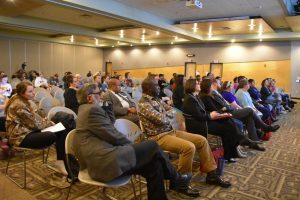
Campus community members listen to the guest speakers talk about their story.
Department chair of communication studies Jennifer Considine said recent events on campus have heightened awareness and the need to talk about hateful acts.
“The hate crimes have increased in our country, and the statistics are up, and we need to be able to talk about that,” Considine said. “We need to be able to talk about what we as a campus and we as individuals can do to to stop acts of hate.”
Considine said people often don’t know how to react in situations where hate is evident.
“I think for many of us, sometimes when we witness an act of hate we initially feel frozen,” Considine said. “I would like all of us to feel better prepared to act in that moment and stand up to hate.”
Considine said there are small steps people can take to help overcome hate.
“The first step is thinking, ‘Where is my own unconscious bias that might be leading me to silence particular issues or particular groups, and how do I address that in myself?’” Considine said. “The second part of that is we need to be braver at stepping up and saying, ‘That’s not okay.’”
Akhtar said he believes the best way to overcome hate is to be regularly engaged with your community.
“People born in this country may or may not realize that America is the best country on the face of this Earth to practice your religion and fulfill your dream,” Akhtar said. “All of us should work together to keep this country united.”


